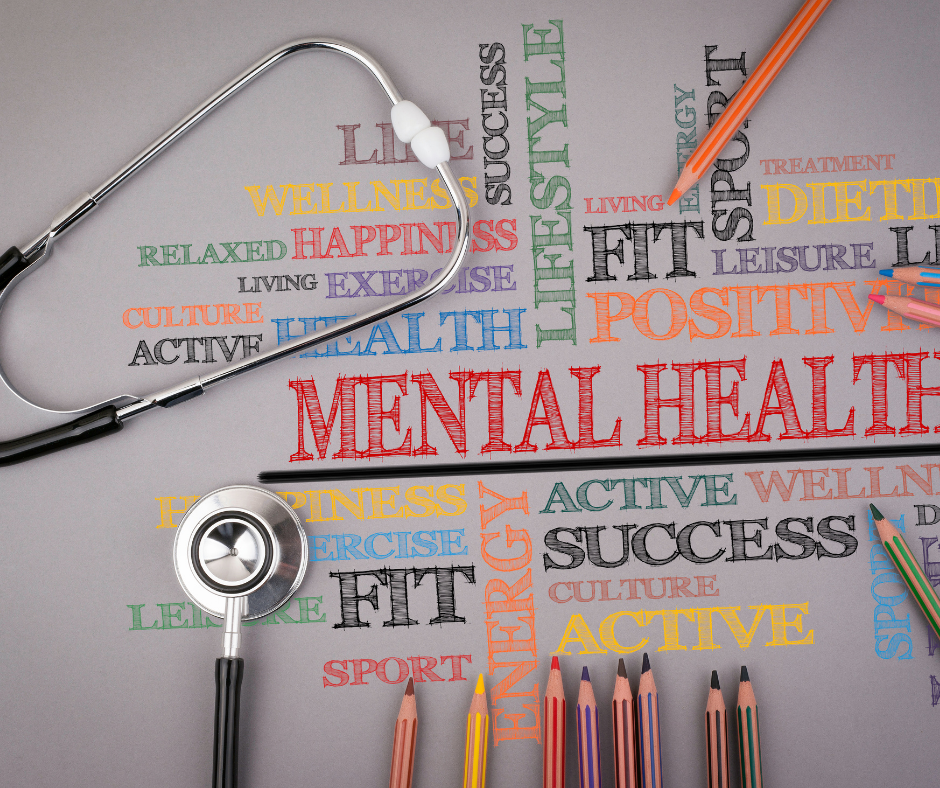Imagine a life free from the shackles of addiction, free to pursue your dreams and aspirations. The road to recovery may seem overwhelming, but with the right guidance and support, it’s possible to overcome addiction and reclaim your life. In this blog post, we’ll uncover the drug rehab process and explore various addiction treatment and recovery options that can help you or your loved ones achieve lasting sobriety.
Short Summary
- Unlock the drug rehab process and explore available treatment options to begin successful recovery from addiction.
- Get personalized care through assessments, evaluations, detoxification & therapy/counseling for long-term sobriety.
- Build a strong support system with family, friends & peer groups for motivation on your journey towards recovery.
Understanding the Drug Rehab Process

According to the Substance Abuse and Mental Health Services Administration, the drug rehab process is essential for meaningful and long-lasting recovery from addiction to substances or addictive behaviors. The process consists of four essential phases: assessment and evaluation, detoxification, therapy and counseling, and ongoing support and aftercare. Each phase plays a crucial role in addressing the complexities of drug and alcohol addiction while offering comprehensive and effective treatment.
In order to ensure the best possible outcome, it’s important to carefully select a treatment setting that meets your unique needs and circumstances. Confidentiality is a key aspect of the substance abuse treatment process, as it safeguards your privacy and creates a safe space for you to seek help without fear of judgment.
By understanding the drug rehab process and exploring the available drug addiction treatment options, you can embark on a journey towards a healthier, more fulfilling life.
To learn more about the effectiveness of rehab programs, read our article on the success rate of rehab for drug addiction and what percent of people stay clean after rehab programs
Assessment and Evaluation
The intake phase is the first step in the drug treatment program, where professionals gather comprehensive data to develop a personalized treatment plan tailored to your specific needs and circumstances. This process involves a medical examination, psychological assessment, and psychosocial assessment. The purpose of these assessments is to gain a thorough understanding of your needs, ensuring that you receive the best possible care during your addiction treatment journey.
An individualized treatment plan is incredibly valuable, as it addresses your unique needs and offers you the best chance of successful treatment and recovery. By taking the time to assess your situation and create a personalized plan, healthcare professionals can provide targeted support and guidance throughout the treatment process, ensuring that you’re on the right path towards a substance-free life.
Detoxification
Detoxification is a vital part of the drug rehab process, as it helps individuals manage withdrawal symptoms while transitioning to a healthier state. Prior to detox, professional medical personnel carefully assess individuals to determine any potential withdrawal risks and the likelihood of a complicated withdrawal. This assessment ensures that the appropriate medical interventions are in place to mitigate risks during the detox process.
Medical supervision during withdrawal can provide a secure and comfortable environment throughout the withdrawal period, ensuring the patient’s safety and comfort. It’s crucial to focus on successfully completing the detox process before taking further steps in drug rehab, as individuals may not be receptive to counseling or therapy until their minds clear and they start feeling better.
Therapy and Counseling
Therapy and counseling play a pivotal role in addiction rehabilitation, as they assist patients in understanding the causes of their addictions and equipping them with the tools to confidently take steps towards recovery. Various types of therapy can aid in addiction rehabilitation, including group therapy, individual therapy, and family therapy.
Group therapy provides an invaluable opportunity to learn from the experiences of others and receive support from peers in recovery. Individual therapy, on the other hand, can help you reform your thinking patterns and make positive behavioral changes that will guide you towards a healthy, sober life.
Family therapy aims to empower the entire family to work together to resolve issues and provide ongoing support for the individual in recovery. By addressing the root causes of addiction through various therapy approaches, individuals can achieve lasting addiction recovery.
Ongoing Support and Aftercare
Creating a comprehensive plan of aftercare is essential for sustaining long-term recovery and avoiding relapse. Therapy sessions can help you maintain sobriety and provide the necessary support as you transition back to your normal life after rehab. Attending peer support groups, such as Alcoholics Anonymous (AA) and Narcotics Anonymous (NA), can help individuals in recovery stay motivated and connected to a supportive community.
Sober living houses like our drug rehab in Charleston have proven to be the most effective approach in aftercare programs, offering invaluable support to patients as they transition back to their normal lives after rehab. By building a strong support system and participating in aftercare programs, individuals can maintain their sobriety and continue on their lifelong recovery journey.
Types of Addiction Treatment Programs

There are two primary settings for substance abuse treatment: inpatient and outpatient treatment. Both options provide valuable support for individuals seeking recovery, with the primary goal of achieving and sustaining a healthy body and abstaining from substances. The choice of treatment level should be based on what will give you the greatest opportunity to achieve a successful recovery.
Specialized substance abuse treatment programs strive to help individuals reduce their substance abuse or achieve a substance-free life while maximizing multiple aspects of life functioning and preventing or reducing the frequency and severity of relapse. By exploring various types of addiction treatment programs, individuals can find the best fit for their unique needs and circumstances.
Inpatient Treatment
Inpatient treatment programs provide an opportunity for individuals to break away from their old ways of life and benefit from 24/7 care and support from dedicated staff personnel. Those who have been unable to overcome their addiction despite other drug rehab programs or have a dual diagnosis that is particularly challenging to treat, such as addiction and bipolar disorder, may benefit from an inpatient treatment program.
The therapeutic community approach in inpatient treatment can help individuals re-socialize and regain their ability to fit back into society after addiction has taken its toll. By immersing themselves in a supportive and structured environment, individuals can focus on their recovery and develop the skills needed to maintain sobriety in the long term.
Outpatient Treatment
Outpatient treatment offers flexibility and independence for individuals to continue with work or family commitments while still attending therapy sessions. A partial hospitalization program (PHP) can be a great option for those with mild to moderate withdrawal symptoms who don’t need 24-hour medical care, providing an effective form of outpatient drug rehabilitation.
An intensive outpatient program (IOP) is a great “step-down” treatment program for individuals who have completed an inpatient or partial hospitalization program, providing support and guidance in the transition to everyday life. By living in an independent supportive environment, either at home or in a sober living house, individuals in intensive outpatient treatment can promote their recovery journey and maintain their sobriety.
Specialized Treatment Programs
Specialized treatment programs are available to meet specific populations’ or needs’ unique requirements, providing tailored care to special populations and allowing them to achieve their greatest potential. Dual diagnosis, gender-specific, and age-specific programs are excellent options for individuals with specific needs.
By exploring various specialized treatment programs, individuals can find the best-suited program to address their unique needs and circumstances.
The Role of Mental Health in Addiction Treatment

There has been a split in the U.S. between mental health services and addiction treatment, presenting a unique opportunity to bridge the gap and address the relationship between substance abuse and mental health issues. Dual diagnosis, or the presence of both a mental health issue and a substance use disorder, is common among individuals seeking addiction treatment.
As per SAMHSA’s 2021 National Survey on Drug Use and Health, about 9.2 million adults in the United States experience a co-occurring disorder.
Addressing co-occurring disorders in the treatment process is essential to guarantee that individuals receive the necessary level of support and care. By recognizing the connection between mental health and addiction, healthcare providers can offer comprehensive and effective treatment that addresses both issues simultaneously, leading to improved outcomes for individuals in recovery.
Identifying Co-Occurring Disorders
Recognizing co-occurring disorders in drug rehab can help individuals access appropriate treatment for both their substance use disorder and their mental illness. A comprehensive assessment, including a physical exam, psychological evaluation, and review of the patient’s medical and mental health history, is essential for identifying co-occurring disorders.
Treating co-occurring disorders is essential to reducing the risk of relapse, improving the patient’s overall health and well-being, and preventing the development of other health problems. By addressing these issues alongside addiction, individuals can receive the necessary support and care to achieve lasting sobriety and improved mental health.
Integrated Treatment Approach
An integrated treatment approach in drug rehab provides a comprehensive and personalized treatment plan to help individuals seeking recovery from drug abuse. This approach addresses both substance abuse and any co-occurring mental health disorders, integrating various therapeutic modalities and interventions for maximum effectiveness.
The components of an integrated treatment approach typically include individual and group therapy, medication management, lifestyle changes, and other evidence-based interventions. By addressing both addiction and mental health issues simultaneously, individuals can achieve better outcomes, stay motivated, and maintain their health and well-being throughout the recovery process.
Building a Support System for Recovery

A strong support system is crucial in maintaining sobriety and preventing relapse. Primary care clinicians play a vital role in substance abuse treatment, as they can identify, screen, and refer patients with substance use disorders to appropriate treatment services. By keeping in touch with the specific treatment program where the patient is being treated and reinforcing the importance of continuing treatment, primary care clinicians can ensure the best support and care for their patients.
Gathering information about local resources, such as support groups and therapy sessions, is a great first step in understanding the available options for substance abuse treatment. By building a strong support system that includes family, friends, healthcare providers, and peer support groups, individuals can maintain their sobriety and continue on their lifelong recovery journey.
Family and Friends
Family and friends play a vital role in drug rehab, as their involvement and support can have a tremendous impact on the individual in recovery and other family members. They can offer emotional backing, encouragement, and understanding during the rehab process, as well as participate in family therapy sessions to help tackle underlying issues and enhance communication within the family.
By creating a positive and drug-free environment for the individual in recovery, family and friends can significantly contribute to their long-term sobriety. Their support and understanding can help individuals overcome the challenges of addiction and maintain their recovery in the long run.
Peer Support Groups
Peer support groups in drug rehab provide a powerful source of support, encouragement, and understanding for those in recovery from drug addiction. Groups like Alcoholics Anonymous (AA) and Narcotics Anonymous (NA) are often facilitated by peers who have successfully overcome addiction themselves, offering real insight and motivation to those striving for sobriety.
“Positive outcomes such as self-efficacy and healthy coping have been associated with AA affiliation, which has been linked to better outcomes,” suggests a study published in Journal of Substance Abuse and Rehabilitation. (Benefits of peer support groups in the treatment of addiction, Tracy, Wallace, 2016)
These groups offer an encouraging and understanding environment for individuals to exchange their stories, gain insight from one another, and cultivate a caring network while going through the healing journey. By participating in peer support groups, individuals can find the guidance, camaraderie, and shared experiences needed to maintain their sobriety and continue on their lifelong recovery journey.
Summary
The journey to addiction recovery may be challenging, but with the right guidance and support, it’s possible to overcome addiction and reclaim your life. By understanding the drug rehab process, exploring various addiction treatment options, addressing the connection between mental health and addiction, and building a strong support system, you or your loved ones can embark on a lifelong journey towards lasting sobriety. Remember, the road to recovery is not a sprint, but a marathon – and with determination, support, and the right tools, you can reach the finish line.
Frequently Asked Questions
What is the process for rehabilitation?
Rehabilitation is a process of restoring an individual to optimal health and functioning through therapy to rectify drug-seeking behaviors, develop coping mechanisms, teach relapse prevention skills, and provide long-term support.
Therapy can help individuals learn how to manage their cravings, identify triggers, and develop healthier coping strategies. It can also help them build a strong support system and develop a plan for long-term recovery.
Rehabilitation programs can provide a safe and supportive environment for individuals.
What are the 5 stages of change in recovery?
The five stages of recovery from addiction are precontemplation, contemplation, preparation, action and maintenance – all of which provide support and guidance throughout the entire journey of recovery.
Embracing these stages can help you gain the necessary strength for a successful recovery.
What is the most difficult part of the rehabilitation process?
The detox process is often regarded as the most difficult part of rehab, due to withdrawal symptoms such as shakiness, nausea, irregular heartbeat, depression, agitation, mood swings, and insomnia.
These symptoms can be difficult to manage, but with the right support and care, they can be managed effectively. It is important to remember that detox is only the first step in the recovery process, and that long-term sobriety requires ongoing support and treatment.
How can family and friends support someone in drug rehab?
Family and friends can offer emotional support and understanding, participate in family therapy sessions, and provide encouragement during drug rehab to help someone overcome their addiction.
These people can be a great source of strength and motivation for the person in recovery, and their support can make a huge difference in the success of the treatment. They can also help the person stay on track with their recovery goals.
What is the difference between inpatient and outpatient treatment?
Inpatient treatment involves staying at a facility and receiving around-the-clock care, while outpatient treatment is usually a long term drug rehab that allows people to receive therapy while living at home.
The post Uncovering the Drug Rehab Process: Understanding Addiction Treatment and Recovery appeared first on Lantana Recovery: Addiction Treatment Rehab Center.
source https://lantanarecovery.com/drug-rehab-process/
No comments:
Post a Comment